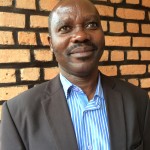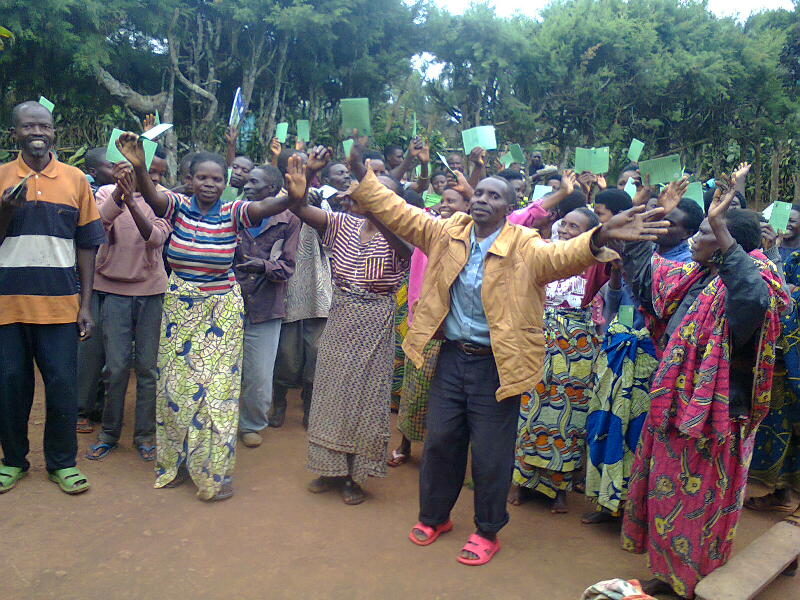Rusizi District is the site of a Randomised Control Trial being conducted by Innovation for Poverty Action, supported by the Gates Foundation. The intervention was completed this year and it is now the sustainability of the programme which is being monitored. The project is to be a demonstration of the classic model of the Community Health Club Model.
In a hygiene campaign meeting that took place on 31st August 2015 in Rusizi District, all local stakeholders agreed on the most relevant strategies to be used to promote and to ensure long lasting community based hygiene behaviour transformation, and one of the strategy that was strongly proposed was the establishment and operationalization of Community Health Clubs (CHCs) under the Community Based Environmental Health Promotion Programme (CBEHPP) in all villages in the district. Rusizi district authority had planned to have a one week hygiene campaign but the issue was how to dovetail this into the existing CBEHPP. The district partners that have the responsibility of promoting hygiene in the district include the Members of the District Social Committee of the District Council, District Executive Committee, Directors of Hospital, Sector Executive Secretaries, Representative of National Women Committee, Representative of National Youth Committee, Heads of Health Centre, Heads of School at Sector level, Country Director of Africa AHEAD and District Coordinator of World Relief. They were addressed by a Member of the Senate of Rwanda presented the hygiene message from the high level leadership of the country.

The Hon. Senator Apollinaire Mushinzimana reminded about the definition of hygiene as “a health phenomenon that involves practices of keeping one’s body clean, keep the environment clean and the food stuff clean & safe to avoid cases of illnesses and or diseases, or the science that deals with the promotion and preservation of health”. He took time to explain the linkage of hygiene and development, such that every development activity should be linked with hygiene practices. He said that this should be done in Rusizi district in particular but it is applicable everywhere in Rwanda. He went on explain the reasons and benefits of promoting sustainable hygiene behaviour change and positively linked hygienic practices with 2015 MDGs, Second EDPRS (2013-2018), Vision 2020. All leaders were urged to compare the levels of hygiene and achievements of the above mentioned national objectives.

The Country Director of Africa AHEAD, Mr Joseph Katabarwa, expressed his appreciation to the Senator and the Mayor of Rusizi District for their determination and reiterated that although the ‘campaign’ approach is useful it does not achieve the same level of sustainable hygienic practices as achieved by the CHCs approach. It was decided by Ministry of Health that the main approach used in Rusizi district for sustainable hygiene behaviour change is the CHCs which provide equal chances for participation of all members of CHCs to contribute their constructive ideas during the dialogue sessions aiming at identifying their health and hygiene problems and then propose solutions.

There are currently 150 villages under the CBEHPP implemented in partnership with Rusizi District, Ministry of Health supported by Africa AHEAD, while Innovations for Poverty Action (IPA) INGO is responsible for evaluation of health and economic impact of CHCs. Africa AHEAD was commended publicly by the district authority for the good work it is doing in the district through CBEHPP although the leadership want the project with Africa AHEAD to be rolled out to all 430 villages, and appealed to the donor, the Gates Foundation to make this happen. The District Mayor and the Senator asked Africa AHEAD to ensure that eventually the CBEHPP is implemented in all villages for achievement of sustainable hygienic practices.

